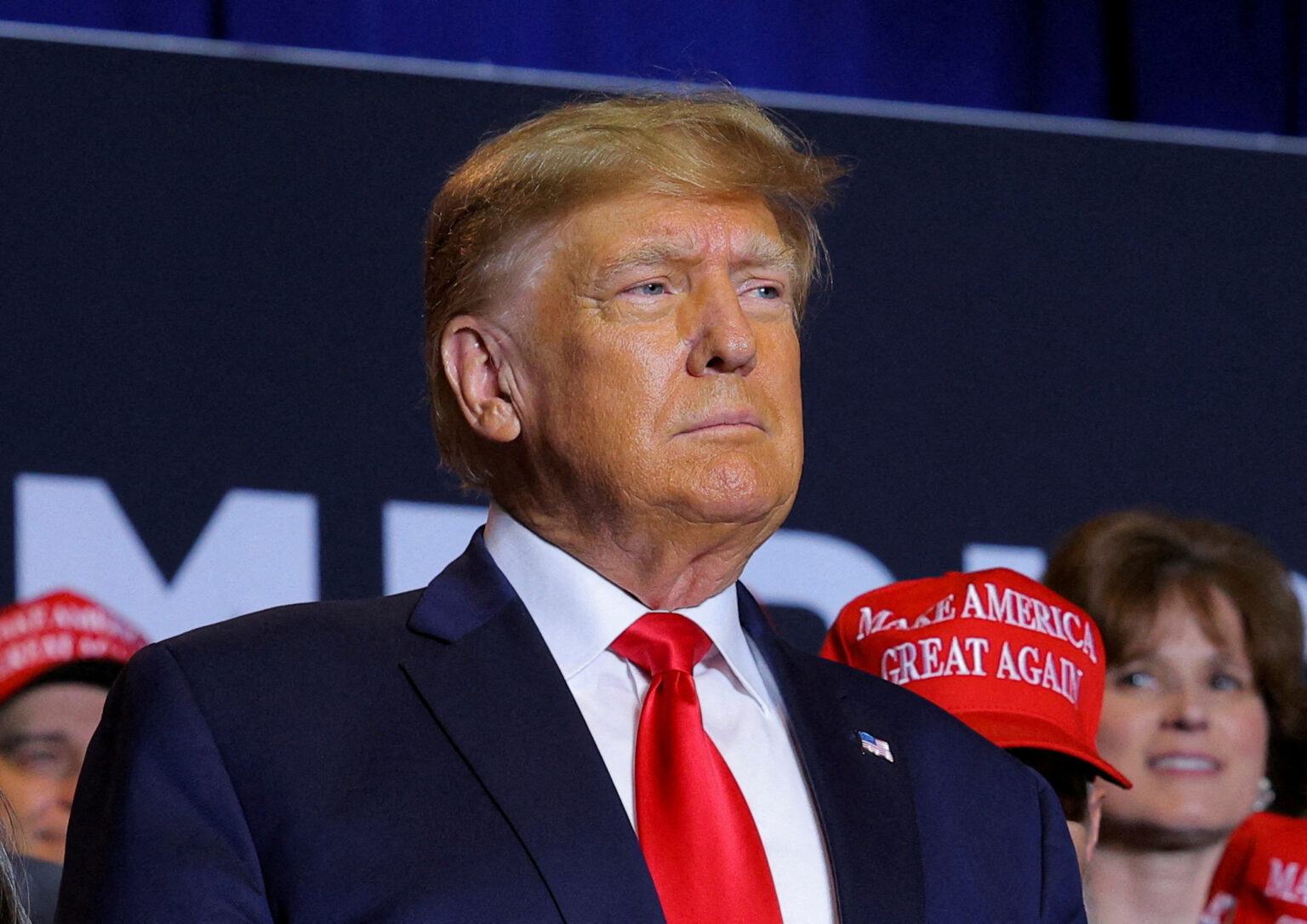…Canada told Trump levies are coming Tuesday
United States President Donald Trump is imposing steep tariffs on major trading partners Canada, Mexico and China, with a lower rate on Canadian energy imports, the White House said.
Canadian and Mexico exports to the United States will face a 25% tariff rate, although energy resources from Canada will have a lower 10% levy.
Goods from China, which already face various rates of duties, will see an additional 10% tariff, the White House said.
The US earlier told Canada to expect the broad duties on its exports starting Tuesday, a Canadian government source told journalists.
Mr Trump is invoking the International Emergency Economic Powers Act in imposing the tariffs, with the White House having said “the extraordinary threat posed by illegal aliens and drugs, including deadly fentanyl, constitutes a national emergency”.
The announcement threatens upheaval across supply chains from energy to automobiles and food.
Mr Trump has repeatedly expressed his love for tariffs, and has signaled that the action could be the first volley in further trade conflicts to come.
This week, the US president pledged to impose duties on the European Union.
He has also promised tariffs on semiconductors, steel, aluminum, as well as oil and gas – without specifying which countries would be targeted.
Mr Trump returned to his Mar-a-Lago estate in Florida for the weekend with no public events on his official schedule. He headed to the golf course earlier this morning.
Canadian Prime Minister Justin Trudeau is expected to hold a press conference around 11pm Irish time, two Canadian government sources told AFP.
Read also: Russia slams Trump For ‘Iron Dome’ missile defense shield plan
Growth concerns
Imposing sweeping tariffs on three key US trading partners carries risks for Mr Trump, who swept to victory in November’s election partly due to public dissatisfaction over the economy.
Higher import costs would likely “dampen consumer spending and business investment,” said EY chief economist Gregory Daco.
He expects inflation would rise by 0.7 percentage points in the first quarter this year with the tariffs, before gradually easing.
“Rising trade policy uncertainty will heighten financial market volatility and strain the private sector, despite the administration’s pro-business rhetoric,” Mr Daco said.
The US president’s supporters have downplayed fears that tariffs would fuel inflation, with some suggesting his planned tax cuts and deregulation measures could boost growth instead.
Democratic politicians criticised Mr Trump’s plans, with Senate Minority Leader Chuck Schumer having said yesterday:
“I am concerned these new tariffs will further drive up costs for American consumers.”
Canada and Mexico are major suppliers of US agricultural products, with imports totaling tens of billions of dollars from each country per year.
Tariffs would also hit the auto industry hard, with US light vehicle imports from Canada and Mexico in 2024 accounting for 22% of all vehicles sold in the country, according to S&P Global Mobility.
The research group added that automakers and suppliers also produce components throughout the region, meaning tariffs will likely increase costs for vehicles.
Ready to respond
Mr Trudeau said that Canada is ready with “a purposeful, forceful” response.
Doug Ford, premier of Canada’s economic engine Ontario, warned Saturday that “the impact of these tariffs will be felt almost immediately,” predicting job losses and a slowdown in business.
Canada should “hit back hard and hit back strong,” he said at a local election campaign stop.
Mexican President Claudia Sheinbaum previously said her government would await any announcement “with a cool head” and had plans for whatever the US decides.
Ms Sheinbaum has met Mexican business representatives, with her economy minister Marcelo Ebrard and said on social media that the private sector was closing ranks around her in the face of potential commercial “arbitrariness.”
White House Press Secretary Karoline Leavitt, however, on Friday dismissed concerns of a trade war.
Hiking import taxes on crude oil from countries like Canada and Mexico could bring “huge implications for US energy prices, especially in the US Midwest,” noted David Goldwyn and Joseph Webster of the Atlantic Council.
Nearly 60 percent of US crude oil imports are from Canada, according to a Congressional Research Service report.

